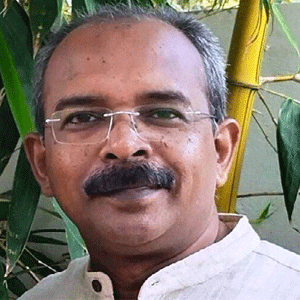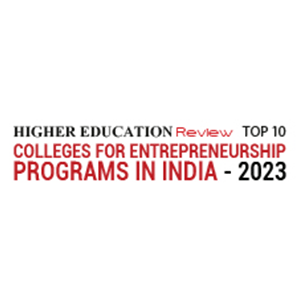Madras School Of Social Work: Systematic Academic Approach Aiming At Sustainable Social Development Through Entrepreneurship Education
By Dr. S. Raja Samuel, Principal
The advent of social enterprise points to the contemporary collective effort to address social concerns like poverty, unemployment, or inefficient public services. In developing nations, social enterprise has become a way to make up for the inability of established public or commercial apparatuses to serve the marginalised parts of society.
As social enterprise has proven its relevance in tackling economic issues and bringing about sustainable social changes, it has slowly made its way into the academic curriculum of many universities and colleges. However, India’s social entrepreneurship picture has not been fully developed yet. With the population influx, the need to create employment opportunities for the underprivileged section of society is deeply felt in the struggle to fight poverty.
And in order to drive solutions to such widespread problems in a sustainable manner, effective entrepreneurial strategies need to be put in place, which is the sole reason for Madras School of Social Work to extend their social work curriculum to social entrepreneurship education. The institution makes the effort to equip their students with entrepreneurial capabilities to encourage the startup culture on a large scale and ensure more employability.
Madras School of Social Work was founded in 1952 by the Indian philanthropist Mary Clubwala Jadav in Chennai. Starting with Social Work curriculum, MSSW later diversified into other social science programmes such as psychology, human resource management, developmental studies, and social entrepreneurship.
The multidisciplinary academic eco-system was built with the intent to acquire a better understanding of the existential crisis of the marginalised communities in the country and to upscale their livelihoods with entrepreneurial skills for sustainable socio-economic development.
MSSW is accredited by NAAC and offers several Bachelor's, PG, and certificate programmes in the aforementioned fields.
The emergence of social enterprise organisations is driving the demand for skilled professionals in social entrepreneurship for the seamless conduct of their operations. MSSW trains the students with an experiential learning system so that they can aid in the current social work requirements and excel in their professional journey.
MSSW has two Bachelor’s and seven PG programmes in psychology, social work, human resources management, developmental studies, social entrepreneurship and counselling psychology. The institution also offers M.Phil., Ph.D and PG diploma programmes. The college has a library of profound resources with nearly 17,000 books, journals and periodicals.
The classrooms are equipped with audio-visual equipment for multimedia learning experience and computers. The campus has 24x7 Wi-Fi connectivity, vehicle parking area, hostel facility and a canteen. While ensuring divergent career prospects with 100 percent placement guarantee, MSSW emphasizes on training the students to be the job providers.
With strong industry-academia linkage through the association with corporate organizations, social work personnel, and alumni, the students can have access to the real-time industry knowledge during their academic years and even avail the support system when they are immersed in the professional world.
MSSW designed their educational system in such way to make sure that their students can embark on their own entrepreneurial journey and maximise employment opportunities for the people belonging the marginalised background.
One of their students is now running her own startup that empowers people with disabilities. The organisation manufactures eco-friendly products and has an online portal to sell them. MSSW also provides the student with a space on its campus to promote these products and motivate more people who are differently abled to foster sustainable livelihoods through entrepreneurship. Antony Stephen, Head, Department of Social Entrepreneurship at MSSW adds, “We are building five broad ecosystem. One is tribal entrepreneurial ecosystem, the second is Dalit entrepreneurial ecosystem along with Women entrepreneurial ecosystem, indigenous and artisan entrepreneur ecosystem.
One of our special focus is also building entrepreneurship assistance for people with disabilities. We provide a few agricultural courses to them such as animal husbandry, compost making and vegetable cultivation.
Through these agricultural business initiatives, they can also employ two to three people from their community in their startup in the rural areas of Tamil Nadu”.
”While ensuring divergent career prospects with 100 percent placement guarantee, MSSW emphasizes on training the students to be the job providers”
Entrepreneurship Development Innovation Institute (EDII), Government of Tamil Nadu has recognised MSSW as a social entrepreneurship hub and entrusted the institution with the responsibility of promoting entrepreneurship in sixty social work colleges across Tamil Nadu.
So moving forward, they are planning to build entrepreneurial ecosystems in other states such as Andhra Pradesh, Telengana and Karnataka. They are also building a startup ecosystem in the northeastern states and focusing on enhancing community resources for great business and employment sustenance.
"The future plan is to transform our department of social entrepreneurship into a separate campus with a residential facility and a learning system available around the clock. We are also planning to improve our faculty strength to navigate all five academic ecosystems", Stephen concludes.
Offers academic programs related to social work and allied subjects such as social work, human resource management, psychology, developmental Studies and social entrepreneurship.
As social enterprise has proven its relevance in tackling economic issues and bringing about sustainable social changes, it has slowly made its way into the academic curriculum of many universities and colleges. However, India’s social entrepreneurship picture has not been fully developed yet. With the population influx, the need to create employment opportunities for the underprivileged section of society is deeply felt in the struggle to fight poverty.
And in order to drive solutions to such widespread problems in a sustainable manner, effective entrepreneurial strategies need to be put in place, which is the sole reason for Madras School of Social Work to extend their social work curriculum to social entrepreneurship education. The institution makes the effort to equip their students with entrepreneurial capabilities to encourage the startup culture on a large scale and ensure more employability.
Madras School of Social Work was founded in 1952 by the Indian philanthropist Mary Clubwala Jadav in Chennai. Starting with Social Work curriculum, MSSW later diversified into other social science programmes such as psychology, human resource management, developmental studies, and social entrepreneurship.
The multidisciplinary academic eco-system was built with the intent to acquire a better understanding of the existential crisis of the marginalised communities in the country and to upscale their livelihoods with entrepreneurial skills for sustainable socio-economic development.
MSSW is accredited by NAAC and offers several Bachelor's, PG, and certificate programmes in the aforementioned fields.
The emergence of social enterprise organisations is driving the demand for skilled professionals in social entrepreneurship for the seamless conduct of their operations. MSSW trains the students with an experiential learning system so that they can aid in the current social work requirements and excel in their professional journey.
Infrastructure of Empowerment
MSSW has two Bachelor’s and seven PG programmes in psychology, social work, human resources management, developmental studies, social entrepreneurship and counselling psychology. The institution also offers M.Phil., Ph.D and PG diploma programmes. The college has a library of profound resources with nearly 17,000 books, journals and periodicals.
The classrooms are equipped with audio-visual equipment for multimedia learning experience and computers. The campus has 24x7 Wi-Fi connectivity, vehicle parking area, hostel facility and a canteen. While ensuring divergent career prospects with 100 percent placement guarantee, MSSW emphasizes on training the students to be the job providers.
With strong industry-academia linkage through the association with corporate organizations, social work personnel, and alumni, the students can have access to the real-time industry knowledge during their academic years and even avail the support system when they are immersed in the professional world.
MSSW designed their educational system in such way to make sure that their students can embark on their own entrepreneurial journey and maximise employment opportunities for the people belonging the marginalised background.
One of their students is now running her own startup that empowers people with disabilities. The organisation manufactures eco-friendly products and has an online portal to sell them. MSSW also provides the student with a space on its campus to promote these products and motivate more people who are differently abled to foster sustainable livelihoods through entrepreneurship. Antony Stephen, Head, Department of Social Entrepreneurship at MSSW adds, “We are building five broad ecosystem. One is tribal entrepreneurial ecosystem, the second is Dalit entrepreneurial ecosystem along with Women entrepreneurial ecosystem, indigenous and artisan entrepreneur ecosystem.
One of our special focus is also building entrepreneurship assistance for people with disabilities. We provide a few agricultural courses to them such as animal husbandry, compost making and vegetable cultivation.
Through these agricultural business initiatives, they can also employ two to three people from their community in their startup in the rural areas of Tamil Nadu”.
”While ensuring divergent career prospects with 100 percent placement guarantee, MSSW emphasizes on training the students to be the job providers”
Looking Ahead
Entrepreneurship Development Innovation Institute (EDII), Government of Tamil Nadu has recognised MSSW as a social entrepreneurship hub and entrusted the institution with the responsibility of promoting entrepreneurship in sixty social work colleges across Tamil Nadu.
So moving forward, they are planning to build entrepreneurial ecosystems in other states such as Andhra Pradesh, Telengana and Karnataka. They are also building a startup ecosystem in the northeastern states and focusing on enhancing community resources for great business and employment sustenance.
"The future plan is to transform our department of social entrepreneurship into a separate campus with a residential facility and a learning system available around the clock. We are also planning to improve our faculty strength to navigate all five academic ecosystems", Stephen concludes.
Dr. S. Raja Samuel, Principal
Offers academic programs related to social work and allied subjects such as social work, human resource management, psychology, developmental Studies and social entrepreneurship.





